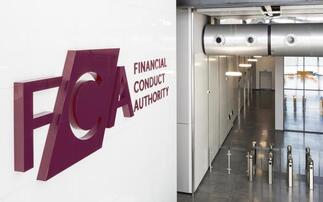Incoming FCA chief Andrew Bailey is expected to take a softer approach to banks than his predecessor Martin Wheatley after he said at a conference he will not adopt the 'shoot first, ask questions later' approach.
Bailey (pictured) told delegates at a conference in Dublin he would not be taking his pre-decessor's hard-line tactics but will seek a "more measured" approach.
Bailey is likely to take over the role of CEO of the FCA in July, it was announced earlier this week.
He was formerly deputy governor for prudential regulation at the Bank of England and CEO of the Prudential Regulatory Authority.
Wheatley was ousted at the helm of the FCA by Chancellor George Osborne last year, who said a different approach was needed at the regulator.
"Shooting first and asking questions later is something that was probably put to bed by the FCA a while ago. It is not my philosophy," Bailey told the conference, according to the Telegraph.
Last month the regulator shelved a planned review of culture at banks - a controversial decision which, it later emerged, had been overseen by a Bank of England official.
The regulator had also said it will take no action against HSBC over allegations of Swiss tax avoidance.
An external review into FCA governance published in January called into question the political independence of the regulator.
It found the FCA board's powers with respect to making independent decisions are limited, and external interventions "can have dramatic effects on the organisation".
Matter of debate
He also warned firms to be clear about their exposure to risky assets as volatility continues to rock global markets.
He added that the regulator's work to prevent a repeat of the 2008 global financial crisis is "still in progress" and a "matter of debate".
Bailey said the increasing assets under management at investment management companies has highlighted the importance of being clear about the types of investments they hold.
Some vehicles have struggled to relinquish assets in line with outflows as investors have rushed to withdraw holdings following the recent volatility created by falling oil prices, interest rate rises and a slowdown in China.
Bailey reportedly praised Third Avenue's $788m credit fund for its transparency after it was liquidated in December following a warning that some funds were investing in illiquid assets.
After receiving the warning, the fund froze withdrawals to avoid fire sales.
"The failure of this fund has not made major ripples all on its own," he said at a conference in Dublin. "Why? I would argue because there was no obvious lack of clarity around the assets, and this is a reminder against the re-appearance of opaque instruments and complex tranching."












